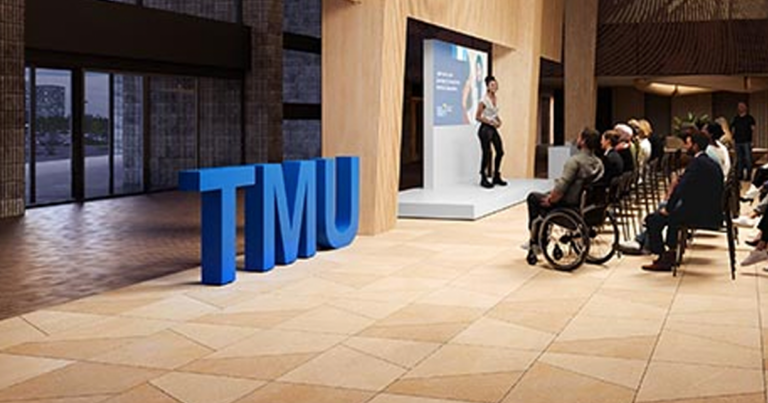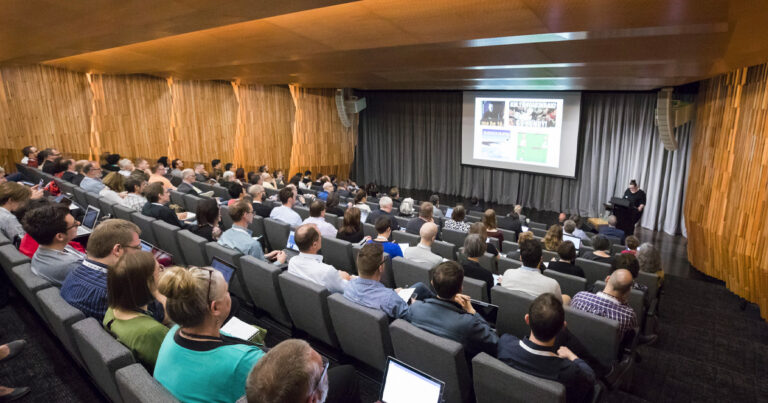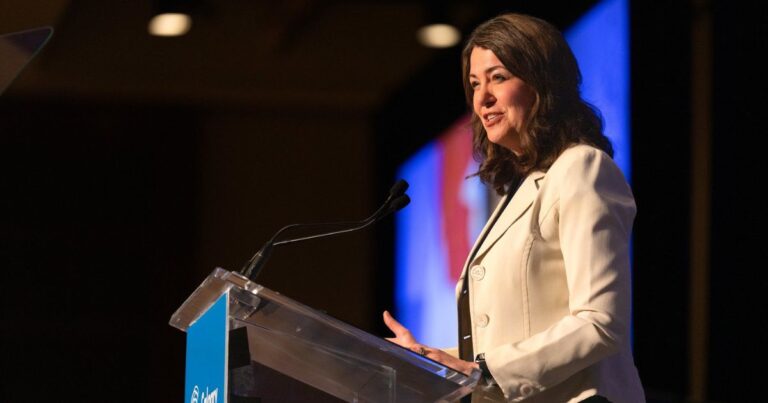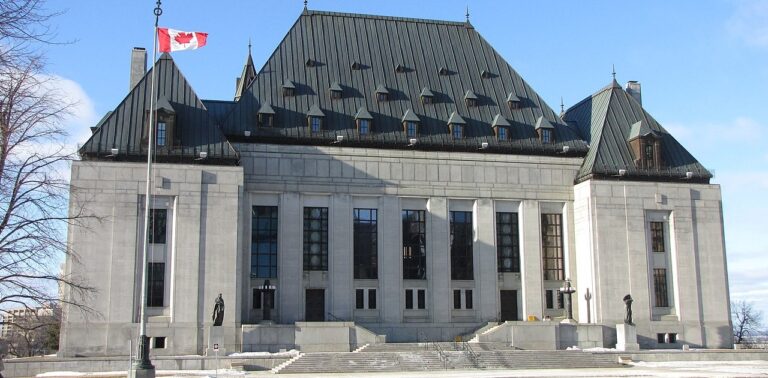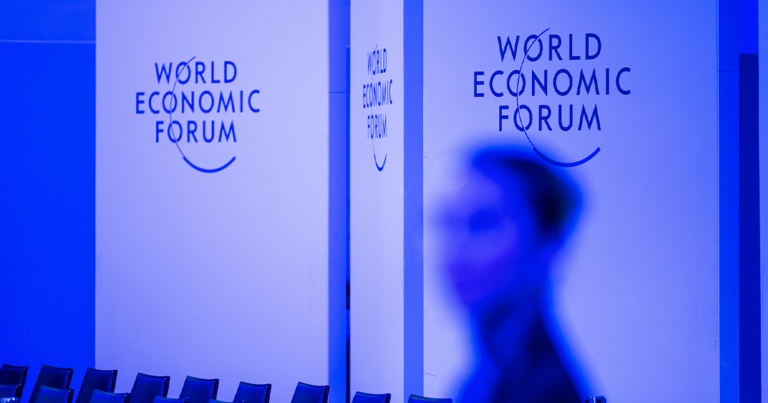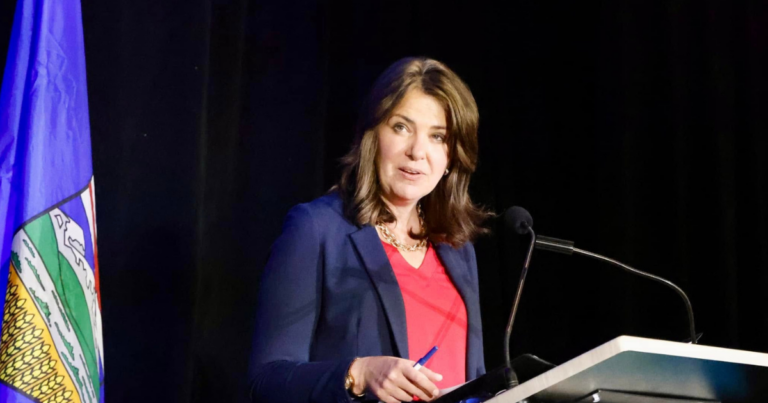An international advocacy group has harsh words for Toronto Metropolitan University after the university hosted a panel on media coverage of the Hamas-Israel war that devolved into 90-minutes of unchecked anti-Israel smears.
Earlier this month, the Toronto school’s Centre for Free Expression held a webinar about the media’s coverage of the Hamas-Israel war dubbed “Can editorial standards be applied fairly in highly polarized situations? The case of Israel and Gaza.”
The panelists included Toronto Star race and gender columnist Shree Paradkar, YouTuber Samira Mohyeddin, TMU journalism professor emeritus Ivor Shapiro, and freelance journalist Sakeina Syed.
For Gerald Steinberg, president of NGO Monitor, the webinar exemplified the “violation of basic journalistic standards,” that included the “numerous false accusations aimed at Israel, and twisted to exonerate the perpetrators of violence against Jews and Israelis.”
He said the panelists displayed “blatant anti-Israel biases” and “very little knowledge” ostensibly to sell a single viewpoint: “Palestinians are victims; Israelis, Jews and Zionists are evil.” In one example he cited Mohyeddin in her “snarling reference” to “the Zionist narrative,” and peddling the idea that “media platforms that divert from this line are traitors to the cause.”
NGO Monitor, founded in 2002, is a research institute that examines and reports on the activities of NGOs involved in delegitimization campaigns against Israel.
During the discussion, Syed expressed moral equivalence between Israel and terrorist groups and compared Israel’s operations to the blitz of London and dropping the atomic bomb on Japan in World War II, without pushback from the moderator or any other speakers.
Syed also claimed without evidence that editors tell newsrooms to not report on Palestinians as human beings.
Meanwhile, Paradkar blamed the Western media for apparently convincing the world that Hamas were the terrorists, and Israelis were the ones defending themselves.
Mohyeddin said that Israel wants the world to believe hospitals are not hospitals, and schools aren’t schools, because Israel wants to bomb them all. Shapiro, moreover, denied the extensive evidence that Hamas systematically exploited hospitals for terror, including holding Israeli hostages. In fact, mosques, schools, UNRWA buildings, schools and hospitals are used cruelly and callously by Hamas and other terror organizations for civilian cover, Steinberg pointed out.
Responding to True North about the question of balance or imbalance of the panel, James Turk, director for the Centre for Free Expression at Toronto Metropolitan University explained that the participants’ views were not relevant to deciding who to speak on the panel.
“So this was a panel not about Gaza and Israel. It was a panel about the application of editorial standards by media in a highly polarized situation,” he said.
“So in our view, in choosing people, it wasn’t what position they had on Israel or Gaza, but rather it was their experience and knowledge about editorial standards and how they’re applied. Ivor Shapiro, who was one of the panelists, is arguably the leading academic expert on the application of editorial standards in the country.”
Shapiro talked about how he can’t understand the difference between Hamas attacking Israel, and Israel bombing terrorist spots in Gaza.
Shapiro, the only academic on the panel, offered what Steinberg referred to as an “unsubstantiated, unacademic and immoral comparison” of the war waged by Russia in Ukraine, the conflict in Sudan, to Israel in Gaza. At the same time he whitewashed “the Hamas mass atrocity, slaughter, and kidnapping of 250 Israeli hostages, and no one raised a red flag.”
Steinberg characterized it as agitprop cloaked as discussion, legitimized by the cover of a university-led event – a university which happens to be funded in part by taxpayers.
Mohyeddin maintained that the Hezbollah pager explosion was a “terrorist attack” by the Israel Defense Forces, even though the Israelis were targeting known Hezbollah operatives in a precise military strike.
“The pseudo-academic event advertised as a panel discussion on editorial standards and fairness highlights the ease with which both frameworks are diverted for divisive propaganda,” Steinberg said.
In his statement to True North, Turk implied that the focal point of the discussion was not on Middle Eastern issues – simply the reporting of them.
“It wasn’t a debate about Gaza or Israel. It was rather what media are doing and how they apply the standards. So, I mean, that’s basically what I have to say,” he said.
The webinar, Steinberg concluded, was “the antithesis of basic standards of fairness and accuracy in journalism.”
Steinberg referred to it as a “blatant exercise in partisanship and unfairness, and highlights the deep bias and lack of professional standards among many journalists and their media platforms, particularly in Canada.”
The absence of any panelist to expose the “many false accusations” he said “add to the atmosphere of violence and intimidation against Jews” and should require an independent investigation by university trustees.
